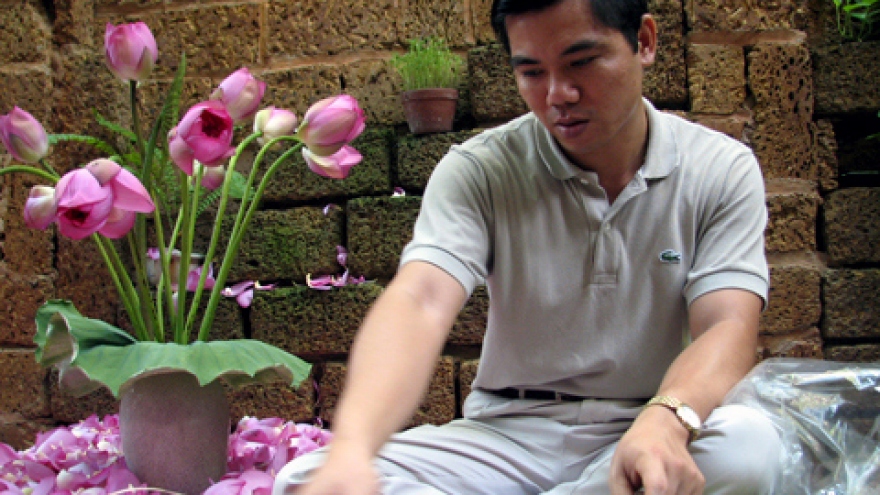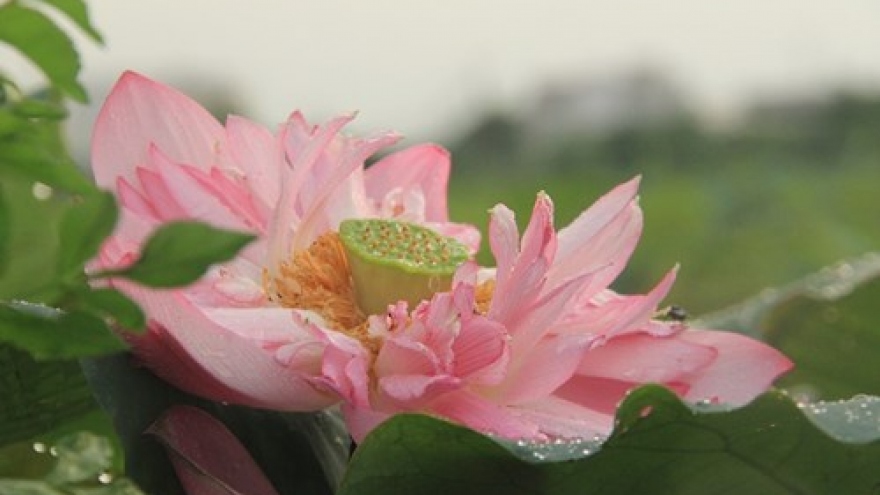Vu Hoa Thao and Quang An lotus tea trademark
VOV.VN - Growing lotus and making lotus tea for more than 30 years, Vu Hoa Thao, Chairman of the Quang An Agricultural Business and Service Cooperative in Quang An district, Hanoi, has helped develop the Quang An lotus tea trademark both inside and outside Vietnam.
 |
Born and raised in Quang An village, West Lake, Hanoi, famous for its lotus ponds, Vu Hoa Thao has long been involved in growing lotus and making lotus tea.
Mr. Thao says lotus tea has been made in Quang An district for hundreds of years and he continues his family’s tradition of scenting lotus tea. Mr. Thao says the West Lake lotus area has shrunk due to rapid urbanization and increasing pollution is endangering the lotus: “40 years ago when we were young, the water in West Lake was so clean we could drink it while we were harvesting lotus”.
In 2010, Vu Hoa Thao started traveling to the outskirts of Hanoi looking for new areas suitable for growing lotus. The difficulty was finding areas with conditions similar to West Lake and not too far from the lotus tea processing area.
Mr. Thao worked with local people to improve their ponds and lakes to assure clean water and thick mud for the lotus to grow in and showed the farmers how to collect the lotus to preserve its fragrance for scenting lotus tea.
Now, lotus ponds in Dong Anh, Gia Lam, Dong Ngac, and Do Xa produce lotus 70 – 80% of the size of the original lotus of West Lake. Many farmers followed Mr. Thao’s recommendations for growing lotus.
Getting involved in growing lotus has made many farmers better appreciate the cultural values of Hanoi. And growing lotus is generating additional income for many people.
Mr. Ngo Van Xiem, a member of the Quang An Agricultural Business and Service Cooperative said, “Mr. Thao is an active person. He has played an important role in finding new areas for lotus growing to safeguard the production of lotus for lotus tea”.
West Lake lotus is now grown in other areas, creating an abundant supply for traditional lotus tea making. Thao says his top priority is protecting West Lake’s water so the lotus can continue to grow: “We have worked hard to save the West Lake lotus and the tradition of making Quang An lotus tea”.
Scenting lotus tea is the traditional craft of the local people of Quang An. Mr. Vu Hoa Thao has made an invaluable contribution to keeping that craft alive.



